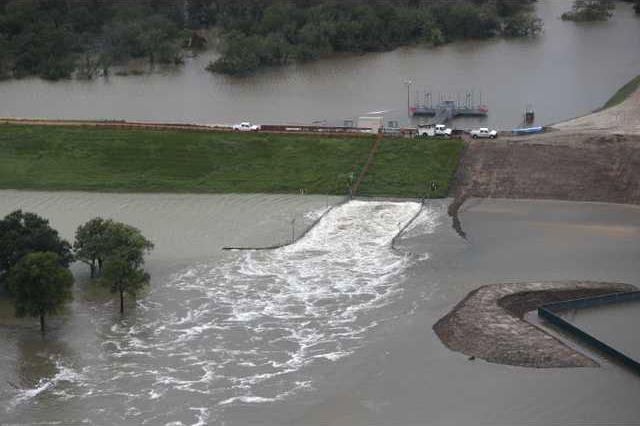Scammers are looking to trick people in the wake of Hurricane Harvey.
As Fortune reported, scammers have released new Harvey-themed phishing emails, which, when opened, could steal login information or infect devices with malware and viruses.
US-CERT, a cybersecurity team for the U.S. Department of Homeland Security, issued a warning to Americans on Tuesday in light of the scams.
"[R]emain vigilant for malicious cyber activity seeking to capitalize on interest in Hurricane Harvey," the advisory reads. "Emails requesting donations from duplicitous charitable organizations commonly appear after major natural disasters."
One of the most common scams involves asking people for money or donations to help the victims of the tropical storm, according to Fortune.
But some of these are merely ploys by criminals to earn some extra cash, said Zack Allen, threat operations manager at ZeroFOX, a cybersecurity startup.
"Cybercriminals are opportunists and, sadly, a crisis like Hurricane Harvey is a prime example of their preying on humanity's empathy and trust," he told Fortune. "People all over the world quickly rushed to their social media accounts to find the best avenues to donate to victims, but these same avenues are ideal for scammers who try to convince victims to donate to their fraudulent Hurricane Harvey cause."
On Tuesday, BuzzFeed reported that people are sharing a phone number that people should call during an emergency. But that number is actually connected to the Foremost Insurance Groups claim service, rather than any emergency number.
US-CERT offered a few tips for avoiding scams:
The person who shared the photo told BuzzFeed that he felt it was fine to share.
"Of course I knew it was fake, it was part of the reason I shared the bloomin' thing," McCann told BuzzFeed. "What I had expected was to tweet that and have my 1,300 followers in Scotland to laugh at it. This was, of course, the intent."
As Fortune reported, scammers have released new Harvey-themed phishing emails, which, when opened, could steal login information or infect devices with malware and viruses.
US-CERT, a cybersecurity team for the U.S. Department of Homeland Security, issued a warning to Americans on Tuesday in light of the scams.
"[R]emain vigilant for malicious cyber activity seeking to capitalize on interest in Hurricane Harvey," the advisory reads. "Emails requesting donations from duplicitous charitable organizations commonly appear after major natural disasters."
One of the most common scams involves asking people for money or donations to help the victims of the tropical storm, according to Fortune.
But some of these are merely ploys by criminals to earn some extra cash, said Zack Allen, threat operations manager at ZeroFOX, a cybersecurity startup.
"Cybercriminals are opportunists and, sadly, a crisis like Hurricane Harvey is a prime example of their preying on humanity's empathy and trust," he told Fortune. "People all over the world quickly rushed to their social media accounts to find the best avenues to donate to victims, but these same avenues are ideal for scammers who try to convince victims to donate to their fraudulent Hurricane Harvey cause."
On Tuesday, BuzzFeed reported that people are sharing a phone number that people should call during an emergency. But that number is actually connected to the Foremost Insurance Groups claim service, rather than any emergency number.
US-CERT offered a few tips for avoiding scams:
- Avoid clicking unsolicited web links seen in emails.
- Update and refresh your antivirus software.
- Review the Federal Trade Commissions guide to noteworthy charities.
The person who shared the photo told BuzzFeed that he felt it was fine to share.
"Of course I knew it was fake, it was part of the reason I shared the bloomin' thing," McCann told BuzzFeed. "What I had expected was to tweet that and have my 1,300 followers in Scotland to laugh at it. This was, of course, the intent."





